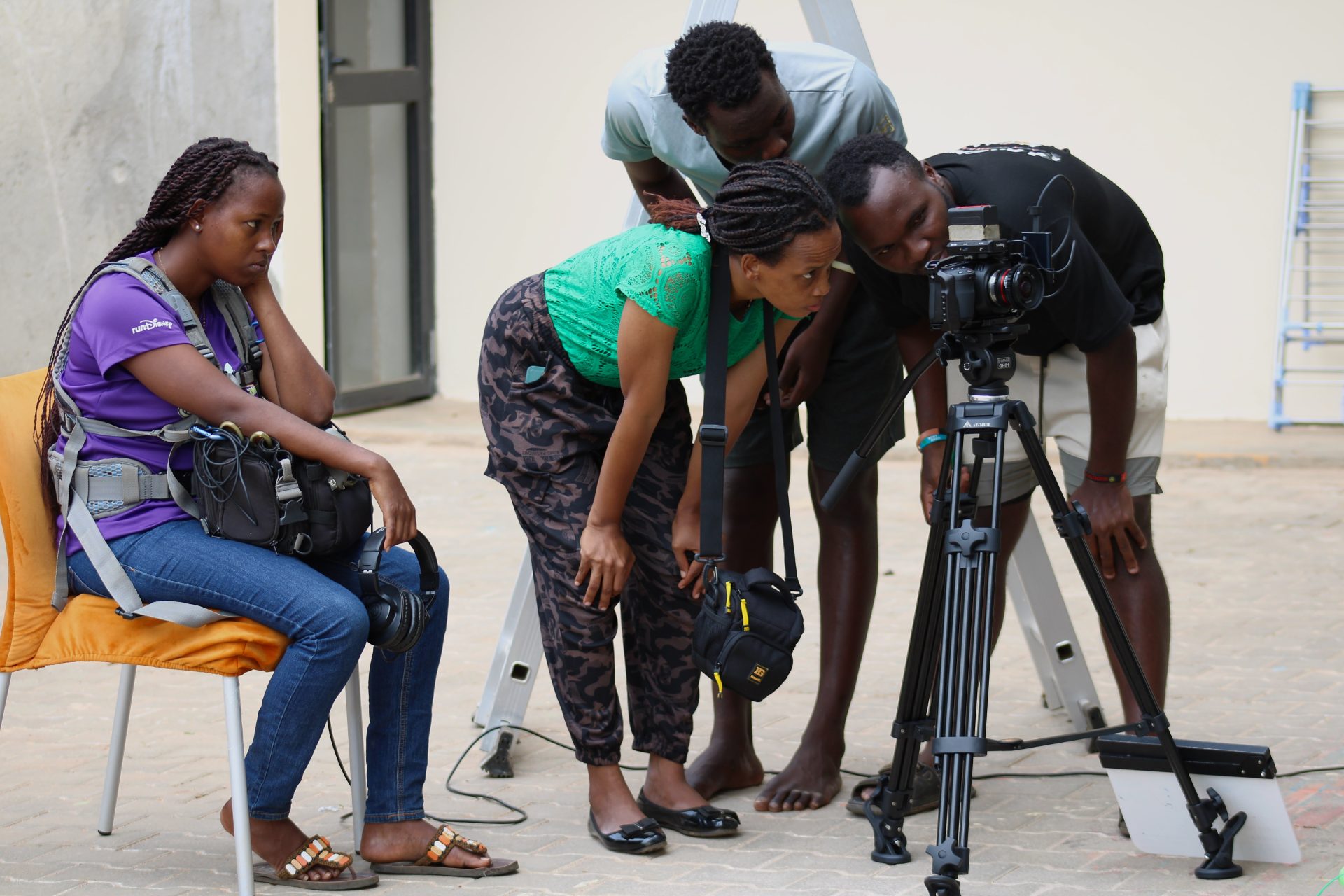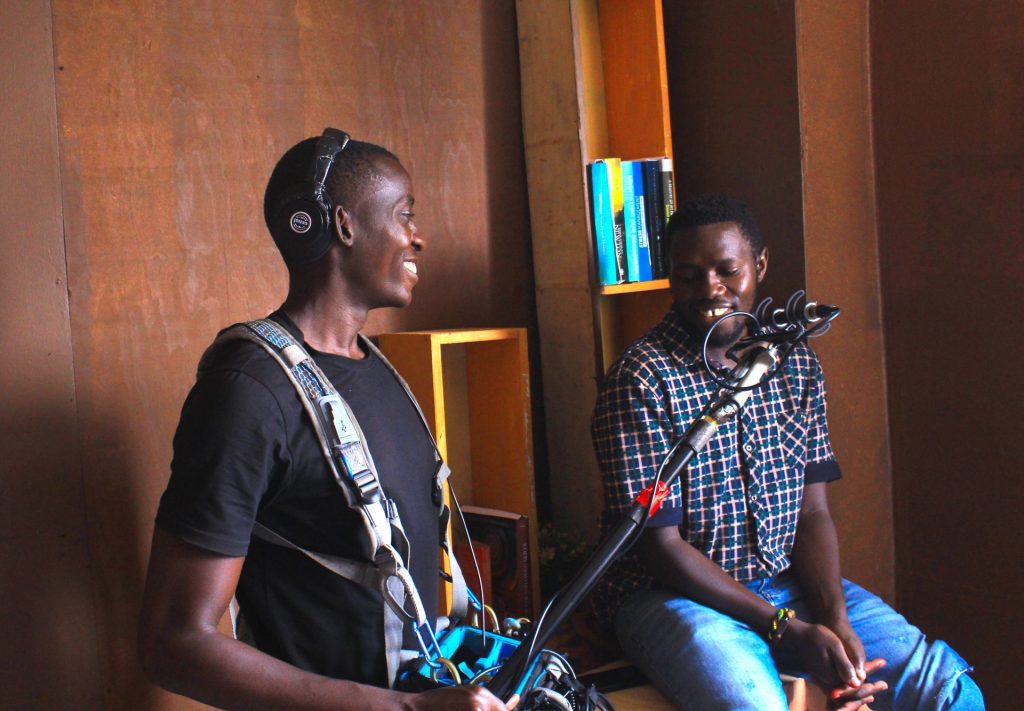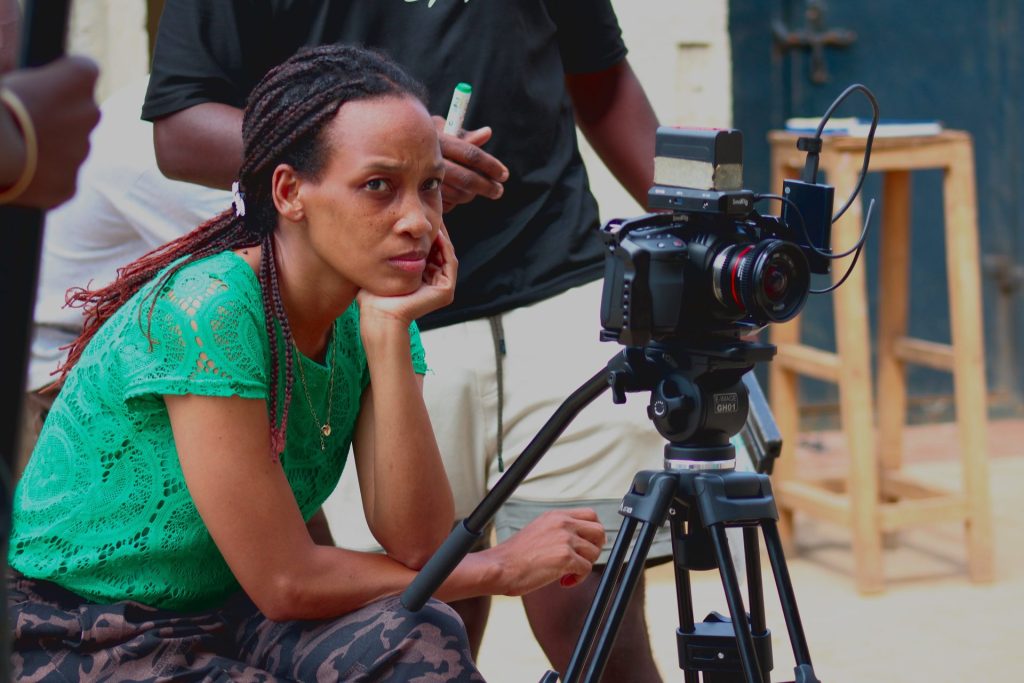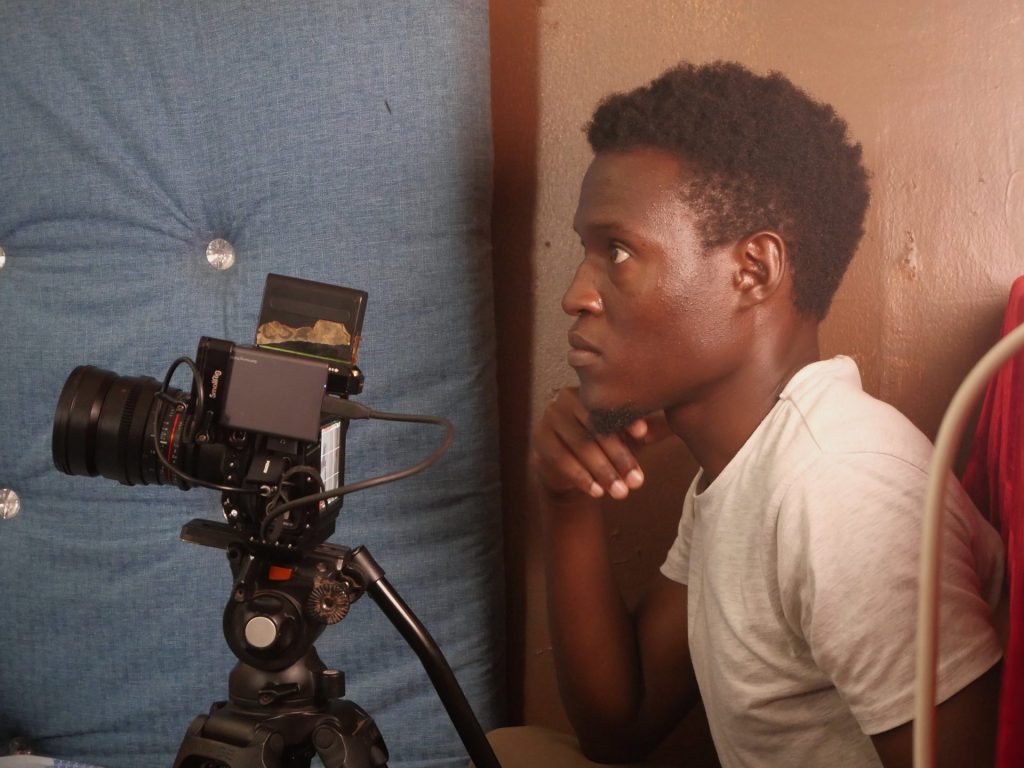Sisi Film Lab
Home »

Written by Sisi Film Lab team
Sisi Film Lab is a film training initiative that happens in five districts of Uganda, and is run by Sisi Film Collective, a non-profit platform for Ugandan filmmakers to network and collaborate. The Kampala edition of the lab, supported by GZK/UGCS and The DOEN Foundation, is scheduled to run for a period of 10 months and commenced on 12th February 2024, with fifteen participants and four trainers.
Some of the participants were already experienced screenwriters and filmmakers, but the vast majority were new to film, though they were accomplished artists in other sectors. The class was thus a perfect smoothie of events photo-videographers, writers, poets, visual artists, musicians, and engineers. They were mostly under 35 years, and eight of them were female.

Image Courtesy of Sisi Film Lab
The youngest trainee, Sandra, says she was at loggerheads with her mother over her future, for her mother wanted her to study law at university, yet she was determined to be a filmmaker. “I eventually failed to join the university because the heart wanted what it wanted, and the mother wanted what she wanted,” she writes in a blog post. They fought over her future for a whole year, but when this training opportunity came up, her mother agreed to let her pursue her desires, and thus this gave them a chance to reconcile. “With immense joy in my heart and a heavy burden lifted off my shoulders I began on the journey of taking three taxis every day to and from the training. The trips were tiresome, the classes were intense but at least I was in a space I was meant to be,” she adds.
Made of four phases, we have has so far completed two. The first phase, which lasted fifteen days, introduced participants to the fundamentals of film making, and they learned how to write scripts, how to record sound using professional equipment, how to edit both sound and videos using open-source software, and how to film using smartphone, which was an easy way to introduce participants to cinematography. In Phase 2, which were twelve days spread over six weeks, participants learned to shoot using a professional camera, the Blackmagic Pocket 4K with prime lenses. Each participant made three short films as exercises, for we believe in the more one does something, the better they get at it. Each participant was a crew in the films of other participants, so while one is on camera one moment, they are on sound the next moment, and in this way everyone learns everything.

Image Courtesy of Sisi Film Lab
While in the first phase participants had to be present everyday for 15 days, the rest of the training allows individuals to schedule their preferred days of learning. This gives room for those who are busy to schedule learning alongside work. Though we did not expect any publishable films from these first two phases, one participant, Victor Mugabi, felt confident enough to submit his work to Ngalabi Film Festival, attesting to the quality of the training. He had to put in an extra effort to polish his film before submission, but ultimately, he decided to submit based on the feedback from his family and friends, after they had watched the film.
“I submitted the first film I did at the training, called Red and Yellow, to tick off an item I have had in my bucket list in line with my vision as a director and writer,” Victor says. “I showed it to my family and friends, and their reactions while they were watching, made the decision for me. If it is a worldwide hit, well and good. If it stops here, I’ll be disappointed, but at least I can point to it when people ask me which films I have made.”

Image Courtesy of Sisi Film Lab
The training emphasizes self-learning rather than spoonfeeding the participants, and it allows space for experimentation and research. Precious Colette Kemigisha, one of the participants who has previously written professionally for TV series, says she had to consult online tutorials to improve her editing skills. “The first time I was learning color grading was frustrating because there seemed like an endless list of things to learn but then I realized I just needed specific information and it was unnecessary to become an expert overnight. That made the second time straightforward and easier.”
A few challenges we encountered so far include power supply, which has been irregular in the area, forcing us to resort to using generators which is expensive. This impacted many participants from working on their assignments in time. Secondly, we are limited on editing machines, since some participants do not have laptops of their own. It requires them to share the two computers available at the studio where the training is happening, and this slows down learning.
We are midway through our training. We now are entering the phases where participants specialize in their areas of interest, and we have lined up masterclasses for the participants to interact with and learn from other industry professionals. These include Nathan Magoola, a renowned producer who will share his thoughts on pitching, and Adnan Ssenkumba and Ali Musoke, who will give masterclasses on sound production and cinematography respectively. They all have extensive experience working within Uganda film industry, and on international productions.
The masterclasses are elective according to individual choice. Those interested in writing shall now work on their scripts and pitching, while those interested in the more technical areas will have more lessons to push their skills to professional level. A big emphasis of these last parts of the training will be on pitching and fundraising. Participants will have exercises on pitching, and will create pitch decks for their short films. The best three will be awarded grants that, in October of 2024, they can use to shoot professional short films, which we hope will be high quality enough to submit to international film festivals so as to improve their resumes.
